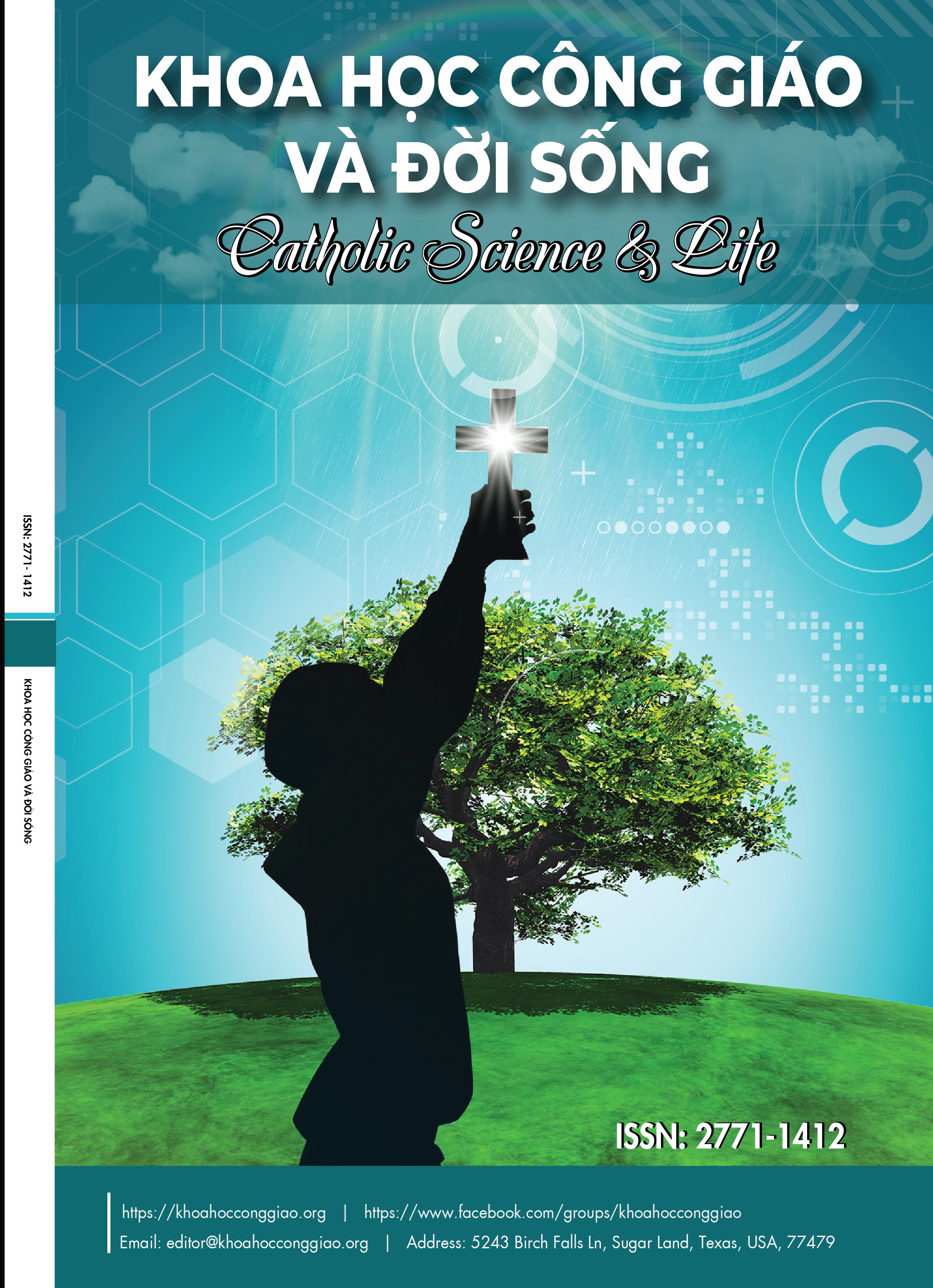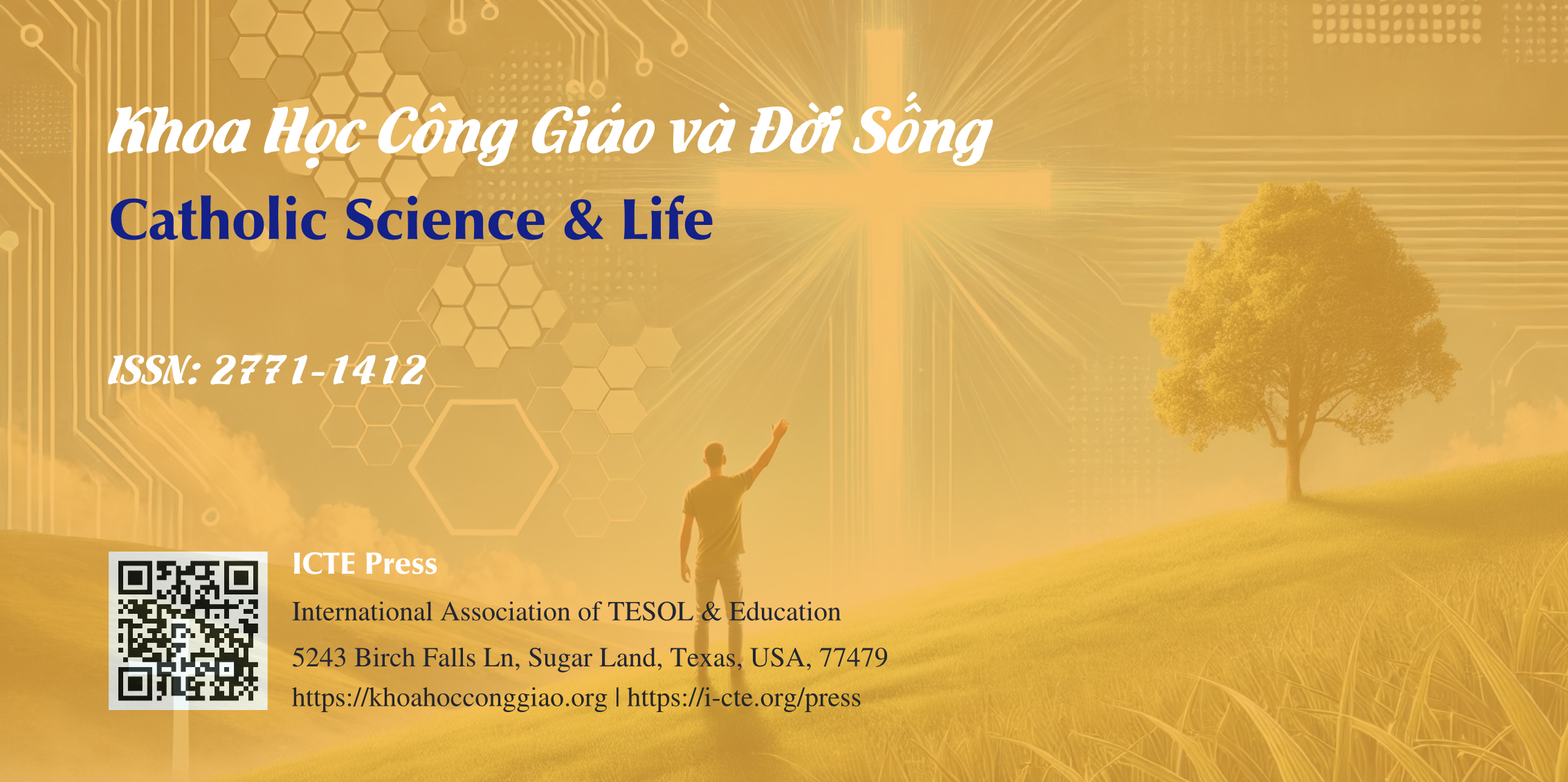Quan Niệm về Tôn Giáo theo Lối Nhìn của Yuval Noah Harari
The Concept of Religion from the Perspective of Yuval Noah Harari
DOI:
https://doi.org/10.54855/csl.233212Từ khóa:
Tôn giáo, công cụ, nhu cầu, Thần linh, DataismTóm tắt
Tôn giáo luôn thể hiện vai trò rõ nét trong đời sống tinh thần và ảnh hưởng sâu sắc đối với với đời sống con người và xã hội. Bài viết là một nỗ lực suy tư cá nhân và trình bày về góc nhìn Tôn giáo theo tác giả Yuval Noah Harari. Theo đó, phần thứ nhất người viết sẽ bàn về Tôn giáo xét như một nhu cầu tất yếu của con người; phần thứ hai sẽ bàn về Tôn giáo xét như công cụ của con người ; phần thứ ba sẽ bàn về Tôn giáo dữ liệu-Dataism ; vài ghi nhận của người viết trước cái nhìn của Harari sẽ được nêu ra trong phần cuối.
Abstract
Religion always plays a significant role in spiritual life and deeply influences human and societal existence. This article is an individual contemplation and presentation of the perspective on religion by author Yuval Noah Harari. In the first part, the writer will discuss religion as an essential human need; in the second part, religion as a tool for humans; the third part will focus on religion as Dataism; and finally, some observations from the writer regarding Harari's viewpoint will be presented in the concluding section.
Tài liệu tham khảo
John H. Hick (1990). Philosophy of Religious. USA: Prentice-Hall.
Lev Tolstoi (2010). Đường Sống, dịch bởi Phạm Vĩnh Cư. Hà Nội: Nxb Tri Thức.
Yuval Noah Harari (2019). Homo Deus- Lược Sử Tương Lai, dịch bởi Dương Ngọc Trà. Hà Nội: Nxb Thế Giới.
Yuval Noah Harari (2020). Sapiens- Lược Sử Loài Người, dịch bởi Nguyễn Thủy Chung & Võ Minh Tuấn. Hà Nội: Nxb Tri Thức.
Yuval Noah Harari (2020). 21 Bài Học Cho Thế Kỷ 21, dịch bởi Dương Ngọc Trà (Hà Nội: Nxb Thế Giới.
Tải xuống
Đã Xuất bản
Số
Chuyên mục
Giấy phép
Bản quyền (c) 2023 Phêrô Nguyễn Văn Thụ, S.J.

Tác phẩm này được cấp phép theo Giấy phép quốc tế Creative Commons Attribution-NonCommercial 4.0 .
Authors retain copyright and grant the journal the right of first publication with the work simultaneously licensed under a Creative Commons Attribution 4.0 International License that allows others to share the work with an acknowledgment of the work's authorship and initial publication in this journal.
Authors are able to enter into separate, additional contractual arrangements for the non-exclusive distribution of the journal's published version of the work (e.g., post it to an institutional repository, in a journal or publish it in a book), with an acknowledgment of its initial publication in this journal.













